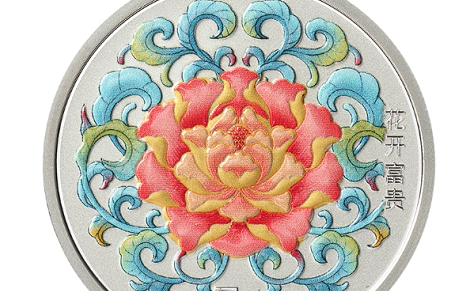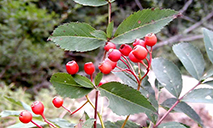Village in SE China's Fujian blazes trail for ecological protection, economic development

Photo shows grapes grown in Shuinan village. (Photo/Chen Yonghe)
A village in southeast China's Fujian Province has brought tangible benefits to its residents, thanks to its efforts in restoring the environment and developing industries with local features in recent years.
Located at the periphery of Wuyishan National Park, Shuinan village, in the Masha township of Nanping city, has gone a long way to improving the living conditions of its residents, having benefitted from thriving grape growing and tourism industries.
Many local villagers once made a fortune growing grapes back in the 1980s. But the quality of the grapes soon declined due to impacts from the pollution emitted by over 50 factories, such as paper production factories and auto parts manufacturers, located in the center of Masha township near the village.
A turning point for the village occurred when Masha township decided to develop green industries in 2012. In the next five years thereafter, the village restored its ecological environment, including doing away with the village’s stinky ditches, treating the discharge of pollution into the Mayang brook, which meanders around the village, as well as making an effort to protect its forests.
In 2017, Masha township encouraged villagers to grow crops with local characteristics to boost the local economy. Shuinan village, which chose to plant grapes, arranged for some of its villagers to acquire more knowledge on planting technology. As one of the pilot villages for the project, it benefited from relevant preferential policies in addition to receiving funds.
Liu Guidao, a villager who had taken up work elsewhere, returned to Shuinan village with his family in 2019 to begin planting grapes. Liu, who had engaged in planting grapes back in the 1980s, explored a new mode for cultivating the prized fruit this time, and started with improving the soil quality. Without applying any chemical fertilizers and pesticides, Liu went about planting vegetables and edible mushrooms, having also raised chickens along the grape trellises. This mode of cultivation made the price of the grapes triple the amount garnered 10 years ago.
Meanwhile, as Wuyishan National Park became one of the country's pilot national parks, Shuinan village likewise spotted some opportunities for the development of a tourism industry locally. While expanding its grape industry, the village built relevant infrastructure in an attempt to translate its ecological advantages into the driving force of economic development.
Since many tourists who come to visit Wuyishan will stop by a lush Phoebe zhennan forest situated in the village, which is one of the major sites on their sightseeing route, the village decided to develop different forms of agritainment near the forest. Liu Hengliang, who runs a brisk agritainment business, said that tourists must make reservations prior to holidays and the village’s grape festivals if they are planning to come for a visit. “Our village is receiving a growing number of tourists, and my life is getting better, too,” he added.
Photos
 China’s central bank to issue commemorative coins on cultural theme of auspiciousness, including two heart-shaped coins
China’s central bank to issue commemorative coins on cultural theme of auspiciousness, including two heart-shaped coins Population of endangered black-headed gulls exceeds 10,000 mark in NE China’s coastal city of Panjin
Population of endangered black-headed gulls exceeds 10,000 mark in NE China’s coastal city of Panjin China's self-developed floating airship breaks record
China's self-developed floating airship breaks record Chinese germplasm bank conserves biodiversity in warm temperate zone
Chinese germplasm bank conserves biodiversity in warm temperate zone
Copyright © 2022 People's Daily Online. All Rights Reserved.






